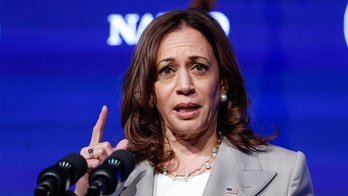President Donald Trump welcomed Argentine President Mauricio to the White House for talks on Thursday and said they'll end up being "great friends, better than ever before."
Trump puts great stock in the relationships he's building with his foreign counterparts, and has spoken extensively in recent weeks about the "chemistry" he says he built with Chinese President Xi Jinping after their talks earlier this month at Trump's private estate in Florida.
A red carpet and military honor guard awaited Macri as his motorcade pulled up the driveway to the South Lawn entrance of the White House, where Trump and first lady Melania Trump greeted Macri and his wife, Juliana Awada. The men patted each other's backs as they turned and went inside. The couples then walked along the colonnade to the Oval Office, ladies first.
Trump described Macri as "my good friend for many, many years." Asked how long that was, Trump replied: "Long time."
In the Oval Office, Trump again raised their personal friendship. "We're going to be great friends, better than ever before," he said.
Macri spoke briefly about his desire for strong relations with the U.S.
Argentine journalists in the room asked about lemons. The Trump administration recently postponed a decision by former President Barack Obama to lift a 16-year ban on imports of Argentine lemons, stalling the return of imports from one of the world's top producers of the citrus fruit.
Trump and Macri met first in the Oval Office and then sat down with their delegations for a working lunch. The two already enjoy a personal relationship from their days as businessmen, ties both hope to leverage to boost U.S.-Argentina relations.
The White House said when it announced Thursday's visit that the leaders would discuss how to deepen relations between their countries. Trump and Macri are also expected to confer on a range of bilateral and regional issues, including trade, security and Venezuela's deteriorating political situation.
Trump said "it's very sad to see what's happening" in Venezuela, where tens of thousands of Venezuelans have taken to the streets over the past month to protest against socialist President Nicolas Maduro. They blame Maduro for triple-digit inflation, hours-long lines to get food, shortages of medical supplies and a rise in crime. Protesters have clashed with security forces, which have used tear gas and rubber bullets to disperse crowds, and looting has destroyed dozens of businesses.




